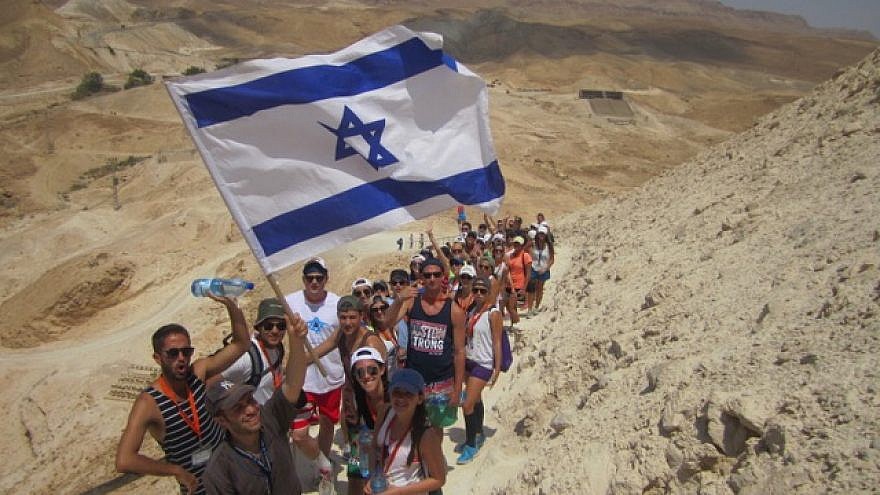For Birthright Israel, 2018 was nothing short of a banner year—a year that accomplished something organizers could only have dreamed of back in 1999. That’s when a few key philanthropists linked arms with the government of Israel and North American Jewish federations to dispatch a busload of college students on the very first Birthright tour of Israel.
Nearly two decades later, a record 48,000-plus young Jews from 67 countries (and an additional 8,300 Israelis who travel with them) left everything familiar to spend 10 days connecting with Israel, Israelis, their Jewish selves and each other. And that brings the Birthright total to a whopping 650,000, representing roughly half of all young Jewish Americans.
Contributing to Birthright’s success are new trip options, including one that has raised the age for participants to 32 (previously, eligibility started at 18 and was capped at 26). Now in its pilot phase, the trip invites young adults ages 27 to 32 on trips of just seven days, owing to the busy schedules of career professionals, graduate students and even parents who make up these trips.
“I hadn’t been in years,” says Tova Ross, a New Jersey mom who was able to get away thanks to her ex-husband and mother, who stepped up to the child-care plate for the week. “The trip changed the way I felt about Israel by giving me a new perspective on the country. I got to appreciate the diversity of the Jewish people by meeting so many different types of young Jews. It gave me as a deeper appreciation of the vital role a Jewish education plays in fostering a strong love for Israel.”
Also adding to the momentum is a menu of specialized trips to choose from and a new streamlined registration system.
“We’ve opened up lots of new spots, so we’ve been able to pretty much do away with the waitlist,” says Noa Bauer, Birthright Israel’s vice president of Global Marketing. And now they also have so many choices, she adds. “They can go with students from their school or on special-interest trips with kids from all over.” Such specialty trips range from archaeology, the culinary arts, hiking, professional development, the LGBTQ community and artists, as well as those for young adults with disabilities, including spectrum disorders, which require having more professional support on hand. “We offer whatever it takes to make sure every young Jew can experience Israel,” adds Bauer. (Note: To qualify for a Birthright trip, you need to have at least one Jewish parent.)
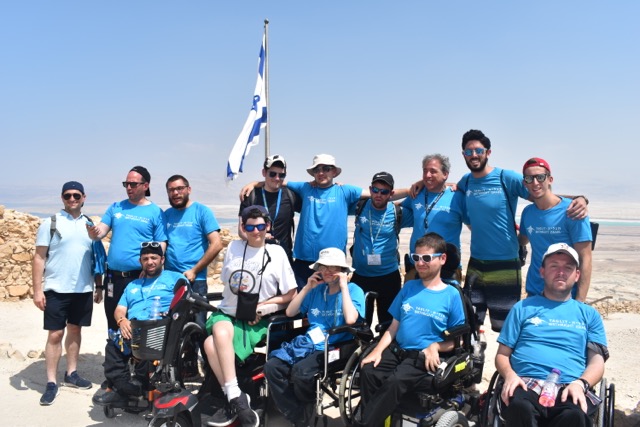
Among the most powerful ingredients of a Birthright experience is the six to eight young Israelis, including Israel Defense Forces’ soldiers, who come along on every trip. It’s a rare opportunity for them to relate to each other in the kind of intimate setting that melts away differences in their cultures, explains Bauer. “The visitors begin to understand what it’s like to defend both Israel and the Jewish people, and the soldiers get so much positive reinforcement from the Diaspora kids. Overnight, they build powerful bonds with each other.”
An investment that pays off in more ways than one
Tom Shaked was finishing her last month of IDF service in 2016 when she took 10 days off to accompany a Birthright trip of mostly Dartmouth College students.
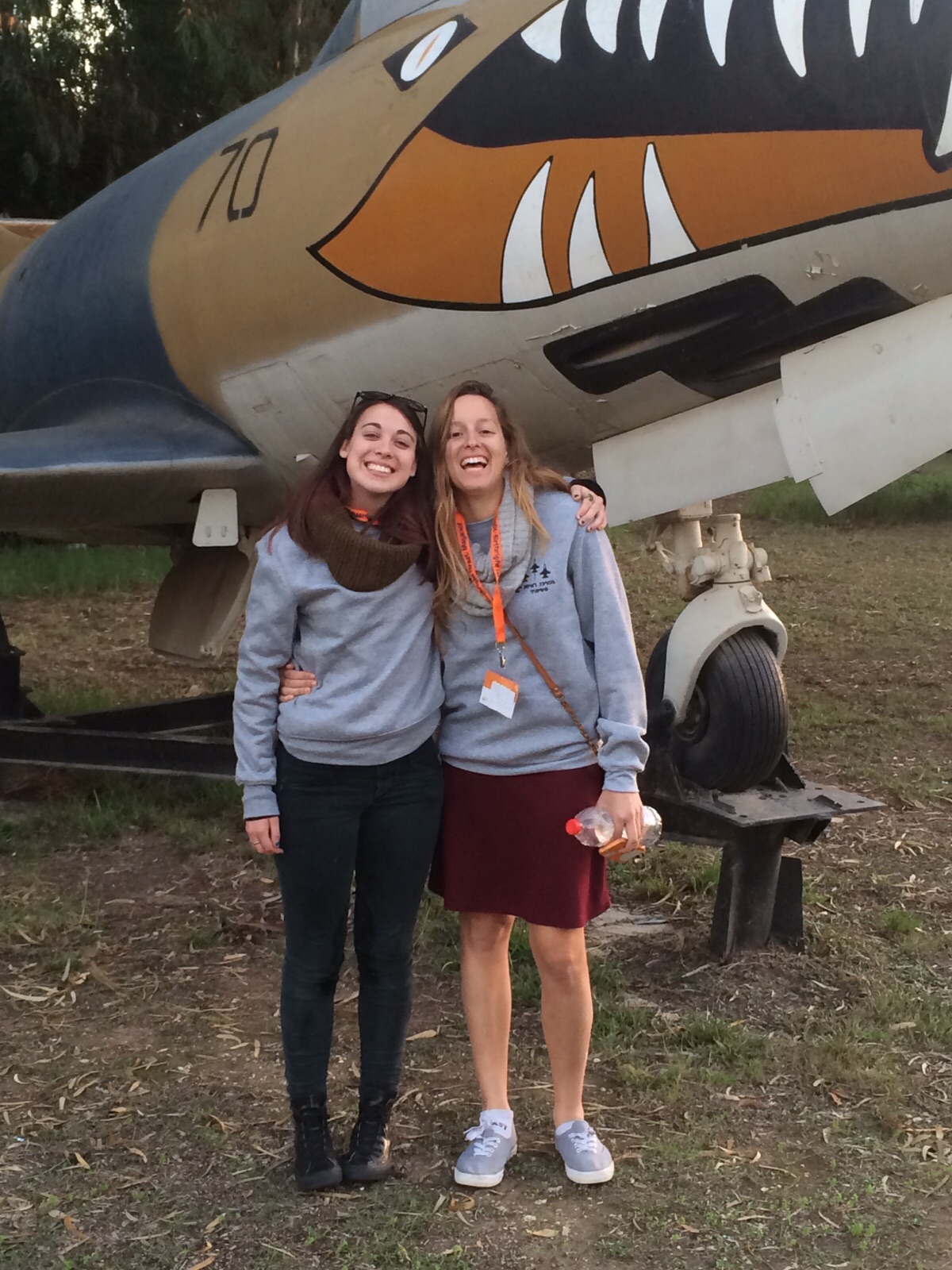
“I was pretty skeptical and went into it expecting 10 days of shallow conversation,” she says. “At first, I did get questions like, ‘Do you know how to shoot a gun?’ ” But sitting in a circle on Shabbat, “the Americans spoke so openly about what they hoped to get from their Birthright trip. Yes, they wanted to see Israel and how Israelis live, but inside they were hoping to learn what it means to be a Jew. And helping them explore their Jewish identity forced me to examine my own.”
Touring her new American friends around her base, “it made me prouder than ever to be a soldier for Israel, to feel this responsibility for something bigger than myself.” Many of the Americans were surprised that Israelis actually want to serve, Shaked reports. “I told them it’s something you want to be part of because all of Israel is one family.”
Equally impactful was their trip to the military cemetery at Mount Hertzl. “They told us that Memorial Day in the U.S. is mostly for shopping, and we told them that on Memorial Day here we get up, dress in black and go to the cemetery because every Israeli family has lost someone. The reality of it smacked everyone in the face—that as Jews we need to be strong and united.”
But this kind of ah-ha moment—serving is it does to connect the next generation to Israel, Israelis and their Jewish selves—doesn’t happen magically. It takes $150 million to send nearly 50,000 young Jews a year on a free Birthright trip to Israel. Two-thirds of the funding comes from philanthropists and donors with the Adelson Family Foundation, which picks up 23 percent of the Birthright tab. The government of Israel funds 28 percent, and the rest is made up of Jewish federations (5 percent) and the Jewish Agency for Israel (3 percent.)
It’s an investment that pays off one young Jew at a time.
“It brought me to a spiritual, emotional place, on our own journey to this place that’s very important to us all,” says recent traveler Yana Kozukhin, a sophomore at New York University. One highlight: Several of the travelers who had never had bar or bat mitzvahs celebrated one on the trip. “It was amazing to see them being given a Judaism they had never had before, a personal connection to their heritage” she said. “So even when we’re in this experience together, a lot goes on inside yourself.”
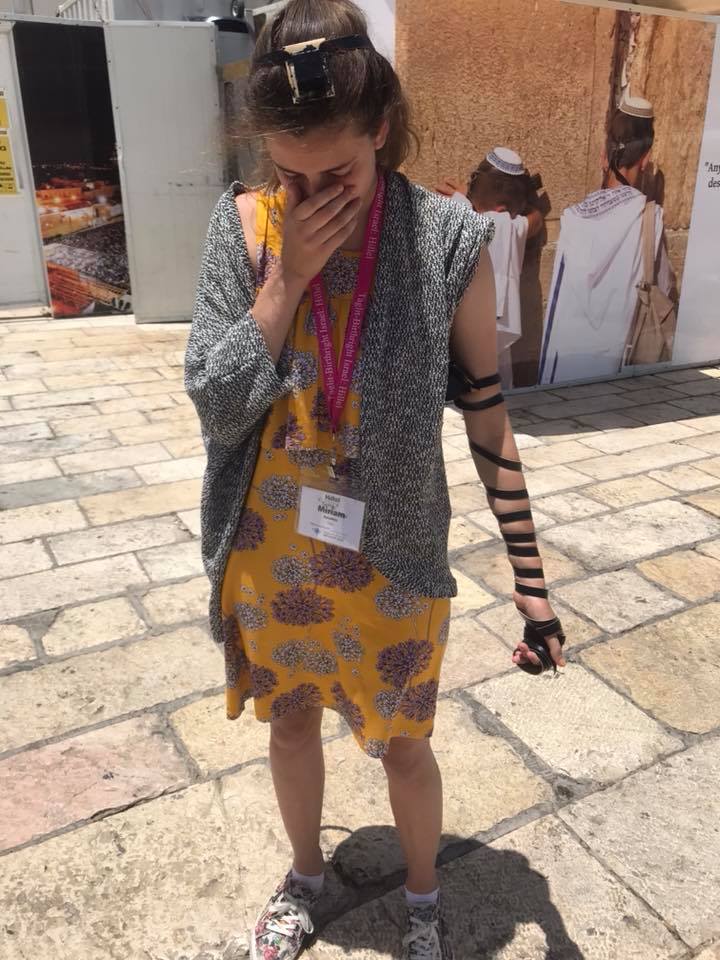
And sea-changes can result from even this short exposure. After returning from Birthright, for instance, Kozukhin switched her course of study; she is now carrying a double major of education and Judaic studies.
Tackling BDS and anti-Israel forces on campus
There are, however, anti-Israel forces on campus working to discourage students from taking these trips, and Birthright travelers often return to campuses where Israel is demonized by professors and students, especially those involved with groups such as Students for Justice in Palestine (SJP), Jewish Voice for Peace (JVP), IfNotNow and J Street U.
Still, such influences do not appear to be slaking students’ enthusiasm. “Birthright doesn’t hide the fact that Israel is a politically complicated place,” says Len Saxe, who in his role as professor of contemporary Jewish studies at Brandeis University has written extensively on the impact of Birthright. “The numbers are clear evidence that political issues and controversies are not preventing people from going to see it for themselves.”
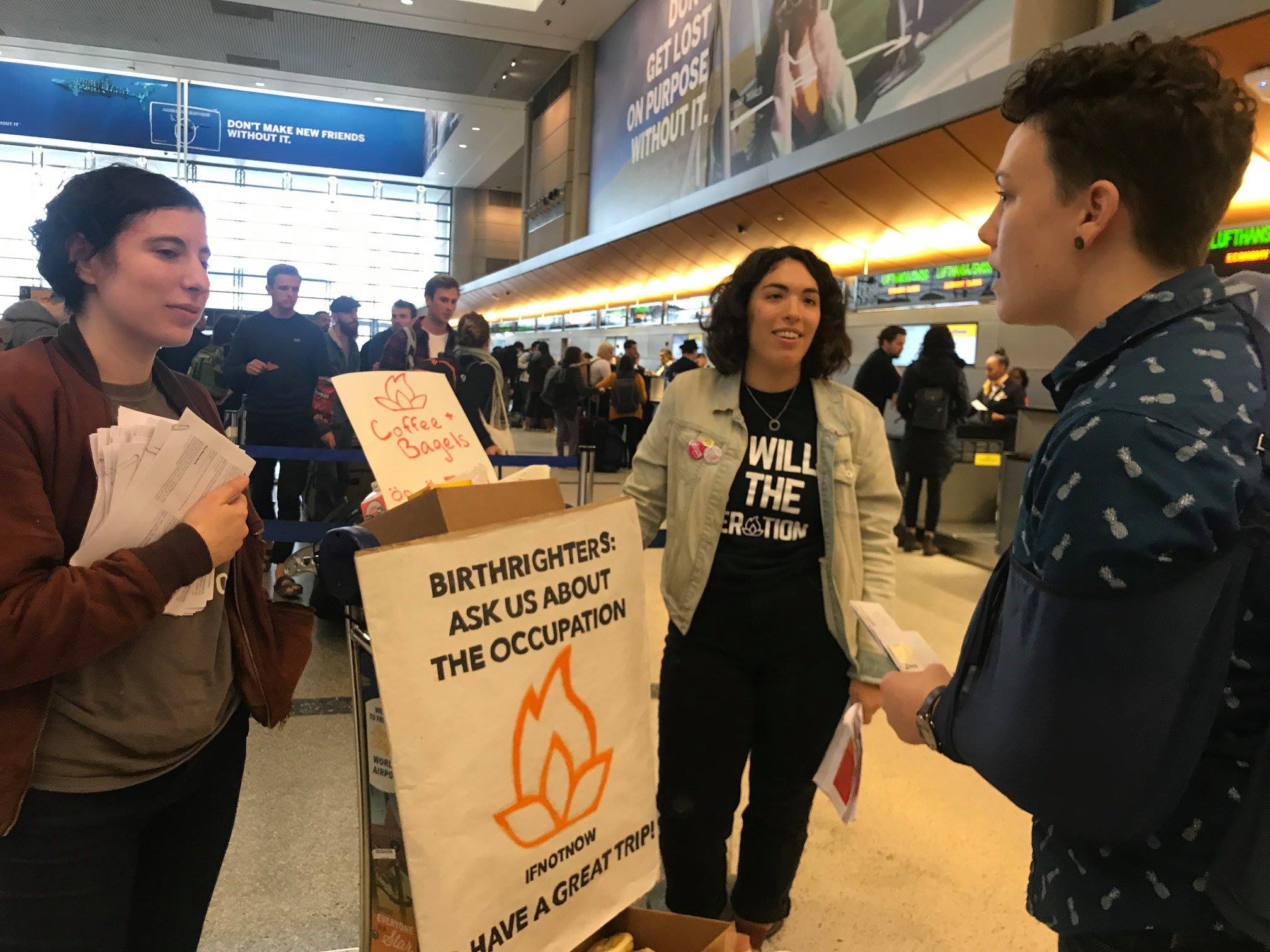
According to Jonah Kurman-Faber, who traveled on Birthright this winter with his sister and cousin, “the Israeli journalist who briefed the group on the situation laid it out in a fair and neutral way. And I was really impressed how even the Israelis who discussed it with each other were having less an argument and more a sense of dialogue,” says the recent graduate of Northeastern University. “We got the feeling that everyone saw different views as still legitimate.”
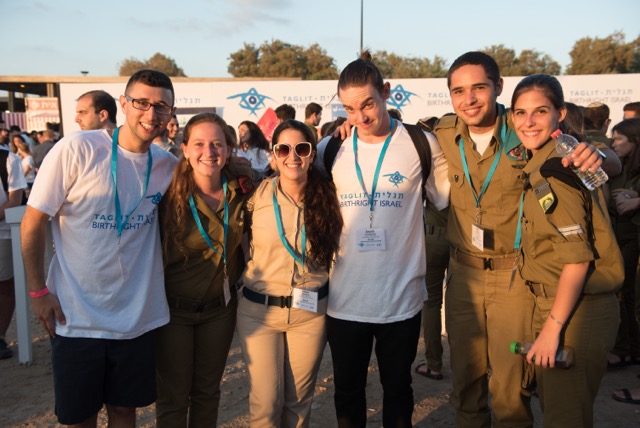
In fact, adds Birthright’s Bauer, “we see the anti-Israel pressures as representing a loud but small extremist position. And although we’re always open to input, we were already offering programming on diversity in Israel and the conflict without having to have anyone tell us to do that … we tell them to expect to come to Israel with questions and leave with other questions.”
But one thing that’s not in question is the powerful impact of a Birthright experience, never as crucial as it is in today’s often hostile campus environment.
“Birthright is a potent weapon against those who would are pitted against Israel and the Jewish people,” says Tammi Rossman-Benjamin of AMCHA Initiative, a watchdog organization that monitors anti-Israel and anti-Semitic pressures on campus. “But Birthright doesn’t exist in a vacuum. Knowing the toxic campus environments many of these young Jews are returning to, organizers have to be even more strategic than in years past and aware that they’re fighting against forces demonizing Israel, the Birthright program and anyone who goes on it.”
Which is one reason Birthright emphasizes reunions after the trip. Kurman-Faber reports being amazed how many of his fellow Boston-area travelers showed up for a Shabbat dinner at a staffer’s house. “For most of us, Shabbat isn’t a regular thing, but we felt compelled to continue so we all crowded in and had a great time.”
And, although Bauer says she’s thrilled when she sees a young immigrant on the streets of Jerusalem whom she knows first tasted the country on Birthright, she clearly acknowledges that mass aliyah is not the goal of the program. “We also need a strong Diaspora Jewish community for the future, and for that the new generation needs to feel close to their people and their land. Now when they see Israel on the news or hear the country criticized,” she says, “they’ll know the realIsrael as they experienced it.
“For thousands of young Jews, Birthright is a powerful transformative experience,” she adds. “It’s one of the few things in life that’s a gift with absolutely no strings attached.”
More than two years after her Birthright trip, Shaked, 24, remains close with many of her American friends, several of whom have been back to Israel on programs and one who lives there now.
“It’s pretty amazing,” she says. “In just 10 days, we went from strangers to feeling like family.”
Click here for more about summer 2019 Birthright offerings.


























